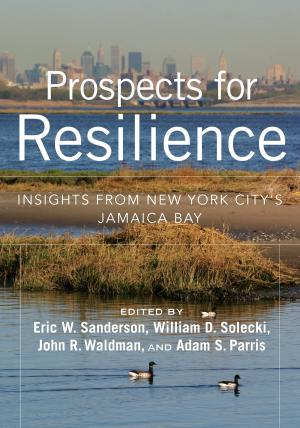Requiem for Nature
Nonfiction, Science & Nature, Science, Biological Sciences, Environmental Science, Nature, Environment, Environmental Conservation & Protection| Author: | John Terborgh | ISBN: | 9781597268820 |
| Publisher: | Island Press | Publication: | July 16, 2012 |
| Imprint: | Island Press | Language: | English |
| Author: | John Terborgh |
| ISBN: | 9781597268820 |
| Publisher: | Island Press |
| Publication: | July 16, 2012 |
| Imprint: | Island Press |
| Language: | English |
For ecologist John Terborgh, Manu National Park in the rainforest of Peru is a second home; he has sphalf of each of the past twenty-five years there conducting research. Like all parks, Manu is assumed to provide inviolate protection to nature. Yet even there, in one of the mremote corners of the planet, Terborgh has been witness to the relentless onslaught of civilization.Seeing the steady destruction of irreplaceable habitat has been a startling and disturbing experience for Terborgh, one that has raised urgquestions: Is enough being done to protect nature? Are currconservation efforts succeeding? What could be done differently? What should be done differently? In Requiem for Nature, he offers brutally honest answers to those difficult questions, and appraises the prospects for the future of tropical conservation. His book is a clarion call for anyone who cares about the quality of the natural world we will leave our children.Terborgh examines currconservation strategies and considers the shortcomings of parks and protected areas both from ecological and institutional perspectives. He explains how seemingly pristine environments can gradually degrade, and describes the difficult social context –a debilitating combination of poverty, corruption, abuses of power, political instability, and a frenzied scramble for quick riches –in which tropical conservation must take place. He considers the significant challenges facing existing parks and examines problems inherin alternative approaches, such as ecotourism, the exploitation of nontimber forest products, "sustainable use," and "sustainable development."Throughout, Terborgh argues that the greatest challenges of conservation are not scientific, but are social, economic, and political, and that success will require simultaneous progress on all fronts. He makes a compelling case that nature can be saved, but only if good science and strong institutions can be thoughtfully combined.
For ecologist John Terborgh, Manu National Park in the rainforest of Peru is a second home; he has sphalf of each of the past twenty-five years there conducting research. Like all parks, Manu is assumed to provide inviolate protection to nature. Yet even there, in one of the mremote corners of the planet, Terborgh has been witness to the relentless onslaught of civilization.Seeing the steady destruction of irreplaceable habitat has been a startling and disturbing experience for Terborgh, one that has raised urgquestions: Is enough being done to protect nature? Are currconservation efforts succeeding? What could be done differently? What should be done differently? In Requiem for Nature, he offers brutally honest answers to those difficult questions, and appraises the prospects for the future of tropical conservation. His book is a clarion call for anyone who cares about the quality of the natural world we will leave our children.Terborgh examines currconservation strategies and considers the shortcomings of parks and protected areas both from ecological and institutional perspectives. He explains how seemingly pristine environments can gradually degrade, and describes the difficult social context –a debilitating combination of poverty, corruption, abuses of power, political instability, and a frenzied scramble for quick riches –in which tropical conservation must take place. He considers the significant challenges facing existing parks and examines problems inherin alternative approaches, such as ecotourism, the exploitation of nontimber forest products, "sustainable use," and "sustainable development."Throughout, Terborgh argues that the greatest challenges of conservation are not scientific, but are social, economic, and political, and that success will require simultaneous progress on all fronts. He makes a compelling case that nature can be saved, but only if good science and strong institutions can be thoughtfully combined.















